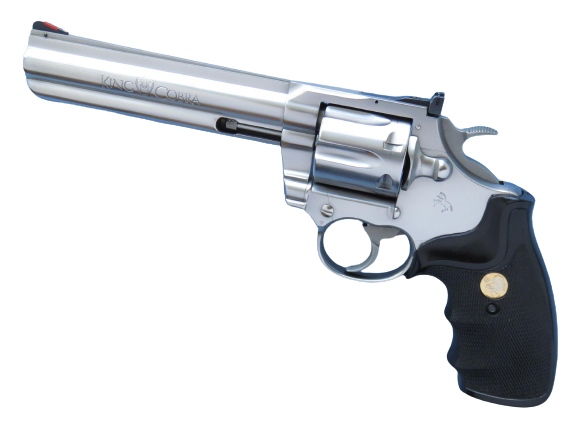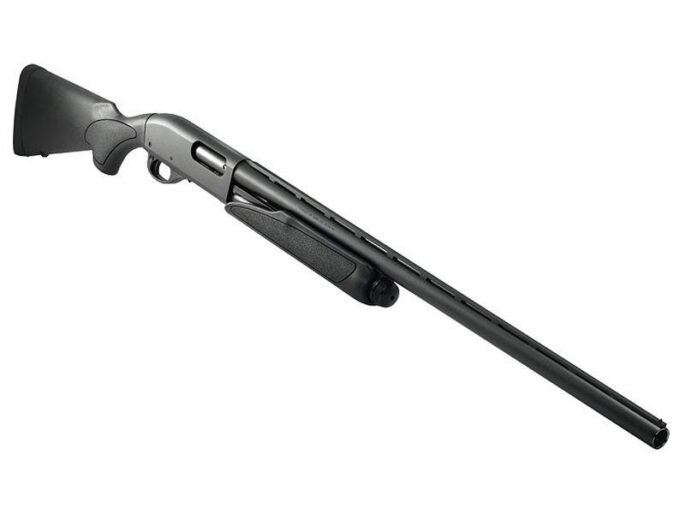- Your cart is empty
- Continue Shopping
Legally buying a gun

How to legally buy a gun
Legally buying a gun, Understanding the legal process of gun ownership is crucial for anyone considering purchasing a firearm, as laws and regulations vary significantly across states and federal jurisdictions. The first step involves getting acquainted with both federal and state laws governing gun ownership, including age restrictions, prohibited possession categories, and limitations on specific firearm types. Purchasing a gun necessitates a background check conducted through the National Instant Criminal Background Check System (NICS), which verifies the applicant’s eligibility and identifies any disqualifying factors such as felony convictions or mental health issues. Legally buying a gun in Texas
A waiting period, often ranging from a few days to a few weeks, is typically enforced between completing the background check and receiving the firearm. Many states require local permits or licenses for gun ownership, involving additional requirements like safety training courses or fingerprinting. Beyond legal compliance, responsible gun ownership entails prioritizing safety through secure storage measures, engaging in proper education on firearm handling and maintenance, and actively participating in training programs to enhance safety knowledge and skills. By adhering to these legal and ethical guidelines, individuals can ensure they are responsible gun owners who contribute to a safe and secure environment. How to Legally Buy a gun.

First-Time Gun Owners
The decision to own a gun is a significant one, and first-time owners should carefully consider all factors before taking the leap. Firstly, they must examine their motivations. Is it for self-defense, sport shooting, hunting, or a combination of reasons? Next, they should assess their lifestyle and environment. Do they live in a high-crime area? Do they have children or pets in the home? Once the decision is made, choosing the right firearm is crucial. From handguns and rifles to shotguns, each type serves a different purpose. Handguns offer concealability and are ideal for self-defense, while rifles excel in long-range accuracy and are popular for hunting and target shooting. Can I Legally buy a gun?
Shotguns are versatile for home defense, bird hunting, and clay pigeon shooting. However, no matter the choice, gun safety training is paramount. Responsible owners must learn proper handling, storage, and cleaning techniques. Courses offered by reputable organizations teach safe loading, unloading, and shooting practices, as well as laws and regulations surrounding firearm ownership. Safe storage is essential to prevent accidents, especially in homes with children or vulnerable individuals. Secure gun safes, trigger locks, and cable locks are all effective options. Who can legally buy a gun
Finally, first-time gun owners must understand the legal ramifications of ownership. They must be aware of local, state, and federal laws regarding gun registration, permits, and the use of firearms. By carefully considering all these factors, first-time gun owners can ensure they make responsible and informed choices, fostering a safe and secure environment for themselves and their communities.
Legally buying a gun, Understanding the legal process of gun ownership is crucial for anyone considering purchasing a firearm, as laws and regulations vary significantly across states and federal jurisdictions.
The first step involves getting acquainted with both federal and state laws governing gun ownership, including age restrictions, prohibited possession categories, and limitations on specific firearm types. Purchasing a gun necessitates a background check conducted through the National Instant Criminal Background Check System (NICS), which verifies the applicant’s eligibility and identifies any disqualifying factors such as felony convictions or mental health issues. Legally buying a gun in Texas
The Importance of Safety when legally buying a gun
The responsibility of owning a firearm extends far beyond the initial purchase, encompassing a comprehensive understanding and adherence to safety protocols. Gun safety is paramount, requiring a commitment to basic principles such as always treating every firearm as if it were loaded, keeping your finger off the trigger until you are ready to shoot, and pointing the muzzle in a safe direction at all times. Secure storage is equally critical, with gun locks, vaults, and other secure options preventing unauthorized access. Legally buying a gun near me.
Furthermore, proper handling techniques, including thorough cleaning and maintenance, ensure optimal firearm functionality and reduce the risk of malfunctions. Safeguarding against accidental discharge necessitates awareness of common causes, such as neglecting to check the chamber before handling, mishandling the firearm, or failing to identify the target appropriately. Preventing access by children and teens is absolutely crucial, with strict adherence to storage protocols and education on the potential dangers of firearms. By prioritizing these safety measures, responsible gun owners can minimize the risk of accidents and ensure that firearms are used only for their intended purpose. Legally buying a gun in Europe.

The History of Gun Control
The history of gun control in the United States is a complex and often contentious one, reflecting a long-standing debate over the balance between individual rights and public safety. Early gun laws, dating back to colonial times, were primarily focused on regulating militias and maintaining order. The Second Amendment, adopted in 1791, enshrined the right to bear arms, a right interpreted by some as an individual right and by others as a collective right for state militias. Throughout the 20th century, gun control laws gradually evolved, driven by concerns over crime and violence.
The 1934 National Firearms Act, for example, imposed stricter regulations on certain types of firearms, including machine guns. The 1968 Gun Control Act expanded background checks and restricted gun ownership for felons and individuals deemed mentally unstable. These laws were punctuated by landmark legal battles, like the landmark case of District of Columbia v. Heller (2008), which affirmed the individual right to bear arms for self-defense in the home.
The Gun Control Debate has been characterized by strong arguments on both sides. Proponents of gun control often cite statistics on gun violence and argue that stricter regulations are necessary to reduce crime and save lives. Conversely, opponents argue that gun ownership is a fundamental right enshrined in the Second Amendment and that gun control measures infringe upon individual liberties, potentially hindering law-abiding citizens’ ability to protect themselves.
Looking ahead, the future of gun control remains uncertain, with ongoing debates focused on issues like universal background checks, assault weapons bans, and red flag laws. The political landscape is likely to continue shaping the direction of future legislation, leaving the intricate balance between individual rights and public safety to be continuously negotiated. Legally buying a gun.
The Mental Health Aspect of legally buying a gun
The intersection of mental health and gun ownership is complex and often fraught with misunderstanding. While mental illness is a significant factor in some gun-related tragedies, it’s crucial to address this issue with nuance and sensitivity. The vast majority of gun owners are responsible individuals with no history of mental illness. However, there’s a clear need to focus on connecting gun owners with mental health resources and promoting open conversations about mental well-being.
This includes breaking down the harmful stigma surrounding mental illness, and ensuring that individuals with mental health challenges are not automatically excluded from gun ownership, and instead, are encouraged to seek help and support. Furthermore, we must prioritize strategies to reduce gun-related suicides, which account for a significant portion of gun deaths. This might include promoting safe storage practices, facilitating access to mental health services, and educating on crisis intervention and suicide prevention resources. Legally buying a gun.
By promoting a balanced approach that respects the Second Amendment rights of responsible gun owners while simultaneously addressing mental health concerns and suicide prevention, we can work towards creating safer communities for all.

Advantages of legally buying a gun
The Second Amendment to the United States Constitution enshrines the right of individuals to bear arms, a right deeply rooted in American history and fundamental to our nation’s founding principles. This right is not merely symbolic, but a practical tool for self-defense, a vital component of a free society, and a cherished aspect of American culture. Legally purchasing a firearm provides individuals with the means to protect themselves and their families from harm, a particularly critical concern for women who may face heightened risks of violence.
Whether it’s the unfortunate reality of home invasions, instances of domestic abuse, or even the unpredictable nature of street crime, knowing how to use a firearm responsibly can empower individuals to take control of their safety. Beyond self-defense, owning a firearm can also provide a sense of security and confidence, particularly in times of crisis or natural disaster, when law enforcement may be overwhelmed or unavailable. Legally buying a gun
Furthermore, responsible gun ownership fosters a sense of personal responsibility and accountability, encouraging individuals to undergo proper training, safety protocols, and ethical considerations. Hunting and recreational shooting are also integral parts of American heritage, providing opportunities for outdoor enjoyment, bonding with family and friends, and acquiring valuable skills such as marksmanship and conservation.
Ultimately, the right to bear arms is a fundamental pillar of a free and secure society, empowering individuals to protect themselves, their families, and their communities, while fostering responsible and ethical practices.

Where to legally buy a gun
It’s important to understand that the legal process for buying a gun varies significantly depending on your location and the specific type of firearm you’re looking for. In general, you’ll need to be at least 18 years old to purchase a long gun (rifle or shotgun) and 21 to purchase a handgun, though some states may have different age requirements.
The first step is to find a licensed dealer, typically a gun shop or pawn shop. You’ll need to provide them with your government-issued photo ID and complete a federal background check. This check will be conducted through the National Instant Criminal Background Check System (NICS), which will verify your identity and check for any disqualifying factors, such as a felony conviction, domestic violence restraining order, or mental health issues. Legally buying a gun.
The dealer will also need to verify your residency, which may require proof of address. Once the background check is approved, you can purchase your firearm and take it home. Remember that federal law prohibits the sale of guns to anyone who is prohibited from owning them, and it is your responsibility to ensure that you are not violating any laws. If you have any questions or concerns, it’s always best to consult with a licensed dealer or legal professional. Legally buying a gun.



